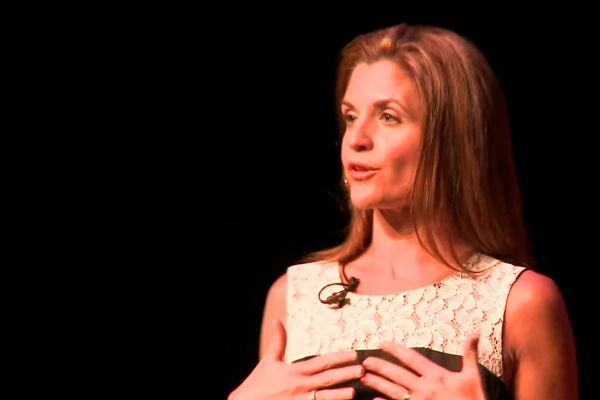Last night, scrolling through my Facebook feed, a firecracker of joy exploded across my emotional landscape, briefly pulling me away from the fear, anger, and grief I’ve felt since the presidential election. A queer female friend had shared a post: Christian writer and blogger Glennon Doyle Melton had announced her new relationship with U.S. soccer star Abby Wambach.
It took me a moment to process the image of these two women, intimately huddled together for the camera. They occupy two disparate worlds for me: Abby Wambach has had a prominent place on my list of celebrity queer women crushes ever since the U.S. women’s soccer team dominated last year’s World Cup. Meanwhile, I’d always associated Glennon Doyle Melton — whom I know mostly through her “Momastery” blog and her new book Love Warrior — with her circle of Christian and/or spiritual writer friends: Brene Brown, Elizabeth Gilbert, Rob Bell.
Melton has never publicly identified as lesbian or bisexual. A prominent focus of her writing has been her three children and her marriage to her ex-husband Craig. So the image and announcement came as a surprise — an incredible, delightful surprise, as invigorating as her friend Elizabeth Gilbert’s similar announcement just a few months ago. Neither woman used any specific word or label to identify themselves in their announcement. But both gushed to readers of their newfound love, affirmed the support of their families and loved ones, and emphatically declared the deep healing and wholeness they’ve found in embracing their full truth.
While I sometimes struggle with celebrities’ choice to avoid labels — and those of us who identify openly as queer, bisexual, or gay could stand to benefit from the visibility — I appreciate the vulnerability with which both Melton and Gilbert share their journeys. And in a time when being a sexual minority makes me feel particularly at risk, I’m grateful to be reminded that I belong to a bigger community than even I know.
I came out five years ago, motivated by my love for my then partner, and remember both the fear and the deep relief that came with finally acknowledging my queerness. It is a gift to bear witness to that same discovery in others, especially when accompanied by a celebration of self-love. It is a powerfully positive experience for my queer friends and I to welcome others into the family.
I find much needed hope and encouragement in their stories, and a strengthened ability to love and embrace my own truth. Even though I came out years ago, and even though I’ve since become a vocal activist for LGBTQ justice, I still struggle often with self-doubt, and the remnants of the shaming theology I learned around human sexuality. This is the painful reality of being a queer Christian — constantly confronted with theologies that deny my own sacred belovedness as one created in the image of a boundlessly loving God. It is also the particular struggle of being bisexual and single: I don’t know with whom, if anyone, I may one day share my life, in the same ebullient way that Melton and Wambach share theirs. That person’s gender will determine many of the struggles we face as a couple. And sometimes my preemptive fear of the more terrifying possibilities of hate we may face drag me bit by bit back into the closet — at least privately.
Reading Gilbert’s announcement and then Melton’s, I’ve found that my tears and giddy laughter were partly happiness for them, and partly a rediscovered ability to imagine a happy future with a woman for myself. Their love, so beautifully declared, gives me profound reassurance that — however my future turns out and whomever my future partners may be — joy and healing and wholeness can continue to accompany me.
Loving outside of the heteronormative paradigm guarantees challenges and risk. In the wake of the Pulse massacre, in the midst of ongoing battles over trans rights and employment protections, in the shadow of the fearsome prospects that lie ahead, the dangerous reality of being queer is painfully evident.
But there is something deeply encouraging about knowing that women like Gilbert and Wambach and Melton share this journey with me. It is a reminder that we get through all of it — the immense joys and immeasurable hardships of this life — together, bound by a common vulnerability and a common hope that cannot be overcome: love, love above all.
Got something to say about what you're reading? We value your feedback!

